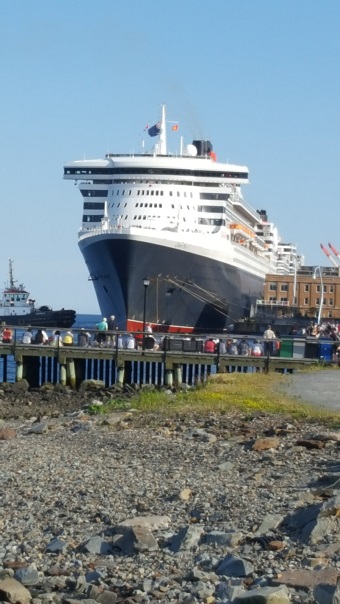 When you are standing on a wharf at the water’s edge and the 90,900 ton Queen Elizabeth blows its horn, your teeth rattle. You can feel it deep in your being. So begins the excitement of Halifax harbor.
When you are standing on a wharf at the water’s edge and the 90,900 ton Queen Elizabeth blows its horn, your teeth rattle. You can feel it deep in your being. So begins the excitement of Halifax harbor.
Tag Archives: Acadian
Prince Edward Island Sights
Our Acadian roots drew us to the Canadian Maritimes where our ancestors were deported in 1755. Walking in the footsteps of our ancestors has been a dream of ours and after two previous attempts we finally made it to the Maritimes the summer of 2019.
St. Mary’s Church – Indian River, PEI
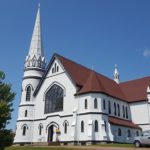
Adventures are everywhere especially when you least expect one. And adventures are not always overwhelming; some happen in rural areas as you round the bend. One of our adventures on Prince Edward Island (P.E.I.) happened just that way – very unexpectedly. While on P.E.I., we wanted to see and do as much as we could. On our way to Malpeque, we could see the steeple of a church miles away. We were intrigued and had to follow the road.
Did Someone Say Lobster?
Crawfish we know, Lobster not so much. Growing up, crawfish boils were a fun time for family and friends. A sack of crawfish, lots of seasoning along with corn, potatoes, onions and just about anything someone wanted to add to the pot. Get to boiling and the party began! So what about lobster? Several times we had lobster in Maine, yet we did not develop a taste for it. We know, add lots of butter. So when we found ourselves on Prince Edward Island (PEI) at the beginning of lobster season, we were ready to give it another try.
Hopewell Rocks, New Brunswick, Canada

“You have to go see Hopewell Rocks” was the mantra from friends who knew we were in the Canadian Maritimes. As we travel, people will tell us “you have to go there, you have to see that, etc”. These places and things may or may not be on our route or things we are even interested in. So as we traveled the Maritimes “Walking in the Footsteps of Our Ancestors”, people kept always telling us what to do and see. Since our mission was to trace our ancestors, other things and places were secondary. One of these places was Hopewell Rocks and we wanted to see the rocks yet the time was never right.
The Historic Acadian Village of Nova Scotia, Lower West Pubnico, Nova Scotia

Although our ancestors never returned to their beloved Acadie, many Acadians were able to return and begin life anew. Their farmlands which had been tamed and cultivated over generations were now the property of English farmers. The Acadians were given the less fertile land near the coast. Once again these Acadians tamed the land, planted crops and many became fishermen. The living history museum of Le Village Historique Acadien provides a vignette of what life was like for Acadians of the region in the early 1900s.
Walking in the Footsteps of our Ancestors
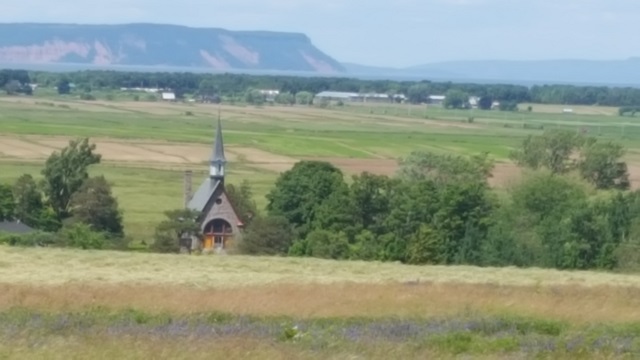
The Canadian Maritimes is a beautiful area full of small towns, friendly people and serene coastlines. As much as we enjoyed all the Maritimes has to offer, our mission for this trip was to “Walk in the Footsteps of our Ancestors”. We accomplished our mission – we found cousins, made many new friends, enjoyed what the area offered.
This post is the hardest and most difficult we have ever written. It is personal, about family, about loses, about sorrow and about much joy, fortitude and determination.
Cabot Trail, Cape Breton, Culinary Tour
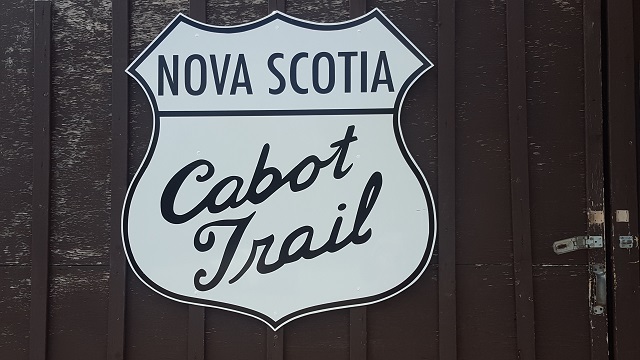
Our time on the Cabot Trail was one of awe and beauty and nothing can take away from the sights and sounds. But being foodies, we could not take a drive on the Cabot Trail without stopping for food every so often.
The Acadian Trail
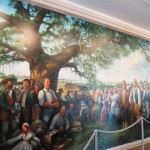 To walk the history of our Acadian ancestors from Acadie to south Louisiana at the Acadian Museum gives us a better appreciation of who we are as a people and a better understanding of the trials and hardships endured to make us who we are today. Located in St Martinville, everything at the museum is presented in both English and French. French is the second language of south Louisiana and for some Cajuns it is their first language. Just as the English tried to destroy families during the exile from Acadie, schools from the 1920s to the 1960s tried to stop the use of Cajun French. But Cajuns are a strong and proud people and our heritage is important so just as the English failed so the schools failed and the Cajun French language survived and is strong today. We Cajuns are proud of our past and of our language. Continue reading
To walk the history of our Acadian ancestors from Acadie to south Louisiana at the Acadian Museum gives us a better appreciation of who we are as a people and a better understanding of the trials and hardships endured to make us who we are today. Located in St Martinville, everything at the museum is presented in both English and French. French is the second language of south Louisiana and for some Cajuns it is their first language. Just as the English tried to destroy families during the exile from Acadie, schools from the 1920s to the 1960s tried to stop the use of Cajun French. But Cajuns are a strong and proud people and our heritage is important so just as the English failed so the schools failed and the Cajun French language survived and is strong today. We Cajuns are proud of our past and of our language. Continue reading

